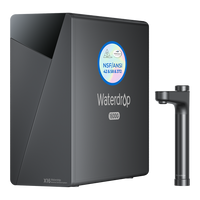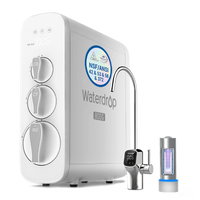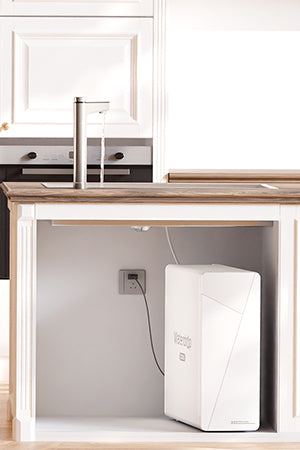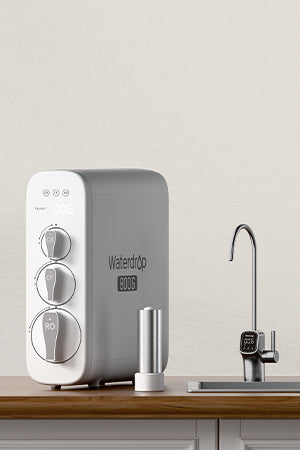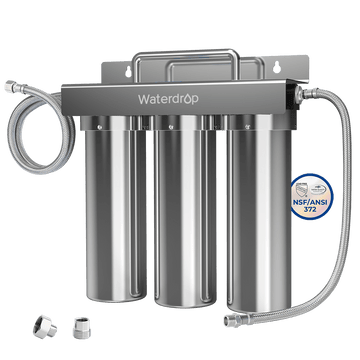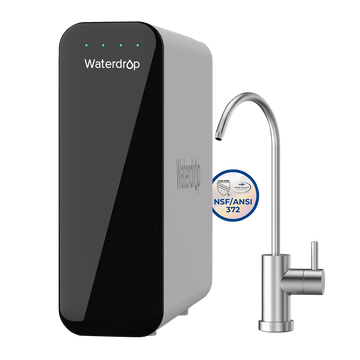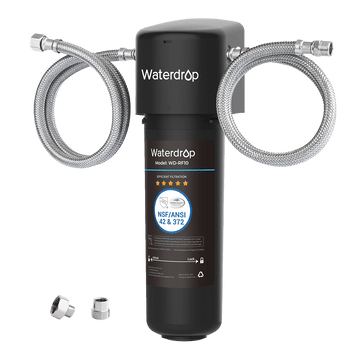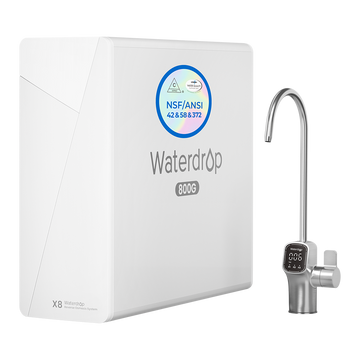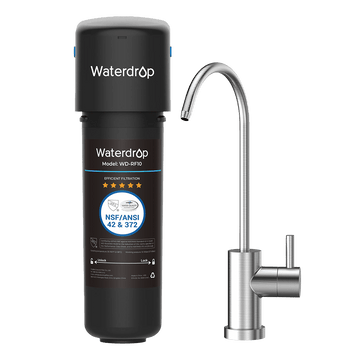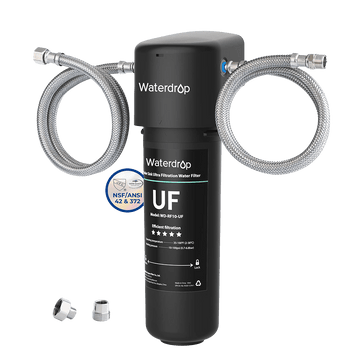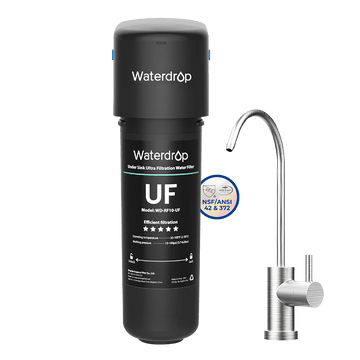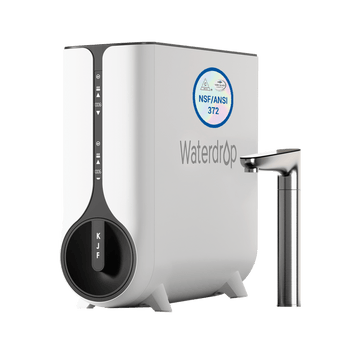The RO filtration system is one of the best filtration systems nowadays. They can effectively reduce most contaminants in tap water, including chlorine, fluoride, heavy metals, bacteria, pesticides, etc. The tankless design has become a trend, especially with its space-saving design that makes it suitable for rooms with limited under-the-sink space.
However, the process of filtration often leads to the production of much wastewater.
Ultra-filtration systems
Ultrafiltration systems reduce debris and contaminants larger than 0.01 micron in the feed water using a hollow fiber membrane. Ultrafiltration systems do not reduce many toxins in the water, but they retain more healthy minerals than RO systems. If your budget is limited and you are interested in a high-cost performance, the ultrafiltration system is a great choice.
Carbon filters
Carbon water filters are the most basic option when it comes to filtration, but they are still very effective. They are designed to filter out odors, chlorine, chloramines, and bad tastes from the tap water, leaving you with clean and odorless water. Carbon water filters cannot remove dissolved substances such as arsenic, VOCs, etc. in the water.
Under-sink water filters are connected with the waterline, so they filter the water before it gets to the faucet or refrigerator. This means you do not have to install another filter at the faucet or refill a pitcher.
They save more space for you.
Installing an under-sink water filter means that you have more storage space on top of the sink or counter.
They require minimal maintenance.
Most under-sink water filters have a long service life, which means there is no worries about replacing the filter or maintaining the system very often.
They offer more options.
Under-sink water filters are available in multiple versions and models: single-stage filtration models, multi-stage filtration models, direct connection systems, water filters with a dedicated faucet, and others.
For instance, the filter system with a dedicated faucet offers filtered and unfiltered water through two different faucets, meeting your different water needs.
They are mostly affordable.
Most under-sink water filters are affordable. You also get to choose from various models depending on your budget. Even with the extra expenses on maintenance, under-sink water filters are still a cost-effective choice for most families.
The filtered water coming from the faucet is at room temperature, unlike the chilled water from the fridge. You may need to add some ice cubes to your drinking water to get chillness.
They are not that easy to install.
People who are not good at DIY may need a plumber to install their under-sink water filter systems. Also, unlike pitchers or dispensers, the installation of under-sink water filters is quite challenging and the system is harder to operate.
Varying filter lifespans means each filter is due for replacement at different times. If you want minimal maintenance without having to worry about remembering the date of the filter replacement, go for an under-sink water filter with a long lifespan of up to a year.
The size of the filter
This depends on the size of your under-sink space. Single-stage water filters generally fit most spaces but multi-stage filters and tankless filtration systems have difficulty fitting into tight spaces. Pay attention to the dimensions of the filter system before purchasing.
The dedicated faucet
Some under-sink water filtration systems usually work with dedicated faucets, and they require some additional installation on the counter. Make sure you have that space and willing to make an extra effort.
The brand and the product
You should buy from a brand you can trust. Consider the inclusion of a warranty in the offer, the standard NSF certifications, and the credibility of the manufacturing company. Also pay attention to the capacity of the filter, flow rate, temperature, and filtration performance. Always avoid a product mismatch.
Always refer to the product manual or contact the customer service for specific and accurate information regarding the specific product.
- Featured
- Best selling
- Alphabetically, A-Z
- Alphabetically, Z-A
- Price, low to high
- Price, high to low
- Date, old to new
- Date, new to old









